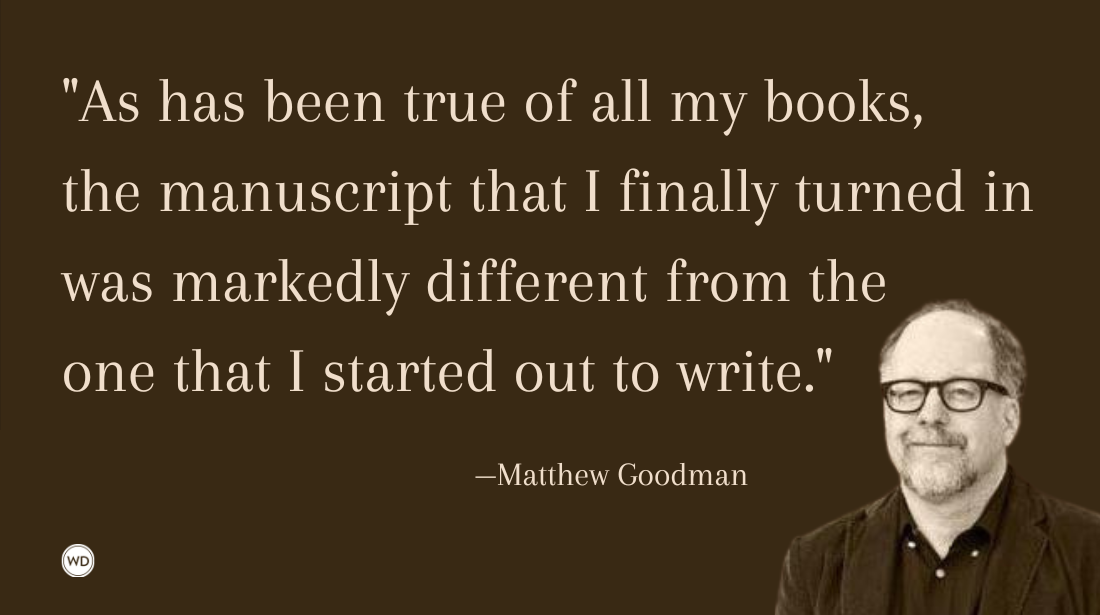Adam Hochschild: On Unlearned History Repeating Itself
Award-winning author Adam Hochschild discusses the surprising things he learned in writing his new historical nonfiction book, American Midnight.
Adam Hochschild is the author of 11 books, including King Leopold's Ghost and To End All Wars (both finalists for the National Book Critics Circle Award) and Bury the Chains (a finalist for the National Book Award and winner of the Los Angeles Times Book Prize and PEN USA Literary Award). He has written for the New Yorker, the New York Times Book Review, and many other publications. He lives in Berkeley, California.
In this post, Adam discusses the surprising things he learned in writing his new historical nonfiction book, American Midnight, his advice for other writers, and more!
Name: Adam Hochschild
Literary agent: Georges Borchardt, Inc.
Book title: American Midnight: The Great War, a Violent Peace, and Democracy’s Forgotten Crisis
Publisher: Mariner Books
Release date: October 4, 2022
Genre/category: History
Previous titles: Half the Way Home: A Memoir of Father and Son; The Mirror at Midnight: A South African Journey; The Unquiet Ghost: Russians Remember Stalin; Finding the Trapdoor: Essays, Portraits, Travels; King Leopold’s Ghost: A Story of Greed, Terror, and Heroism in Colonial Africa; Bury the Chains: Prophets and Rebels in the Fight to Free an Empire’s Slaves; To End All Wars: A Story of Loyalty and Rebellion, 1914-1918; Spain in Our Hearts: Americans in the Spanish Civil War, 1936-1939; Lessons from a Dark Time and Other Essays; Rebel Cinderella: From Rags to Riches to Radica, the Epic Journey of Rose Pastor Stokes.
Elevator pitch for the book: The Trumpiest period of American history before Trump was the years 1917-1921, filled with rage against immigrants, a frenzy of red-baiting, and a couple of things Trump would have liked to do: throwing dissenters in jail and massively censoring the press.
IndieBound | Bookshop | Amazon
[WD uses affiliate links.]
What prompted you to write this book?
I’m astonished that this period is not better known. It tends to get left out of history textbooks, but it shows dramatically the nasty currents of xenophobia, racism, and vigilante justice that are never far below the surface in this country.
How long did it take to go from idea to publication? And did the idea change during the process?
The writing and research took me close to three years. Although I had something of a head start because the woman who was the subject of my previous book, Rebel Cinderella, had lived through this period. And I had also written magazine pieces about several other parts of the story.
Were there any surprises or learning moments in the publishing process for this title?
The Age of Zoom has certainly changed some of the things you do to publicize a new book these days.
Were there any surprises in the writing process for this book?
I think the biggest surprise was about the character of Woodrow Wilson. We think of him as the most scholarly of American presidents—a prolific author, a former university president—and, with his dream of the League of Nations, a visionary internationalist. In recent years, people have become more aware of how racist he was, and a few buildings and institutions have been renamed as a result.
But until writing this book I had no idea how little he cared about civil liberties. He was an enthusiast for press censorship and showed no concern at all about the thousands of Americans jailed during his second term because of what they had written or said.
What do you hope readers will get out of your book?
A sense of how fragile democracy and the rule of law can be, and how vigilant we have to be to be sure they are not eroded. And also, a sense of outrage and surprise: Why didn’t they learn more about this extraordinary time in school?
If you could share one piece of advice with other writers, what would it be?
Always, always be thinking: How can I tell this story in a way that will make it enticing and irresistible to a reader who previously didn’t think he or she was interested in this subject?
Robert Lee Brewer is Senior Editor of Writer's Digest, which includes managing the content on WritersDigest.com and programming virtual conferences. He's the author of 40 Plot Twist Prompts for Writers: Writing Ideas for Bending Stories in New Directions, The Complete Guide of Poetic Forms: 100+ Poetic Form Definitions and Examples for Poets, Poem-a-Day: 365 Poetry Writing Prompts for a Year of Poeming, and more. Also, he's the editor of Writer's Market, Poet's Market, and Guide to Literary Agents. Follow him on Twitter @robertleebrewer.








